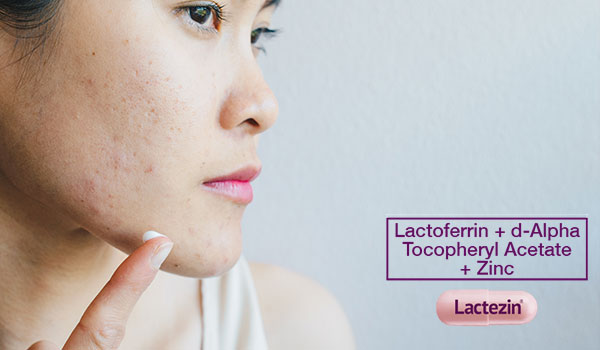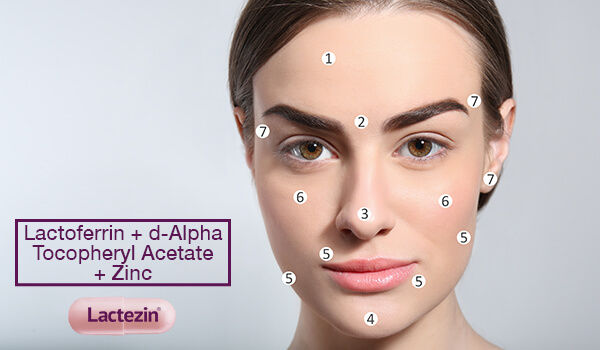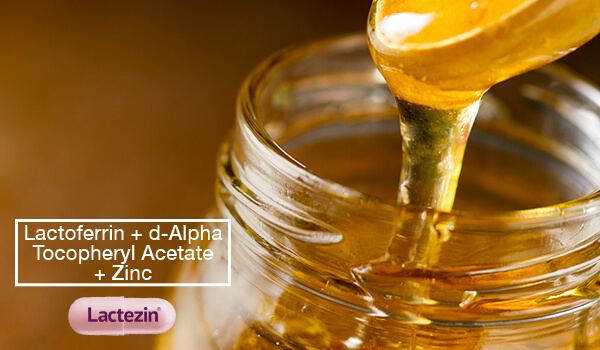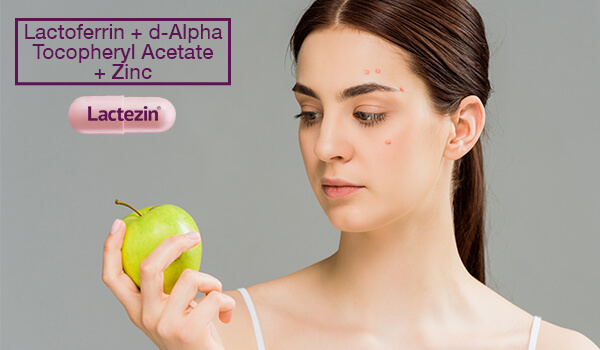Understanding Adult Acne

There are many things from our teenage years that we’d like to forget about, from awkward hairstyles to questionable fashion choices, and even skin problems like acne. But with age, some of us come to realize that acne can follow us later on in the form of adult acne.
Top questions about adult acne
To help you understand adult acne better, we’re answering the most common questions about it, such as why it happens in the first place and what you can do about it.
What causes acne again?
Acne starts with a clogged pore; that much is applicable no matter what age you are. The pores, which are the opening that surrounds each hair follicle also house the sebaceous glands that secrete sebum (oil). This oil actually helps keep the skin soft and protected, but if the pore gets clogged by excess oil, dirt, dead skin cells, and bacteria, then you’ve got the perfect storm for a pimple.
Take a closer look at how a pimple is formed and how it eventually dies in this article. Read more: Acne Up Close: The Life Span of a Breakout
How often does adult acne occur?
Sadly, it’s not just wrinkles or age spots that adults are worried about when it comes to their skin. Clinical studies show that around 40-55 percent of adults aged 20-40 are diagnosed with low grade, persistent acne as well as oily skin.
Women also tend to get adult acne more often than men. Another study revealed that 54 percent of women above the age of 25 experience some facial acne.
Do hormonal changes affect acne?
They most certainly do. Fluctuations in hormones, like the ones that occur before a woman’s menstrual cycle, is one of the main causes of adult acne. For example, the increase in the production of progesterone after ovulation ramps up the production of sebum, which is related to acne. In the case of both men and women, male hormones like testosterone also increase sebum production and therefore play a role in hormonal acne (which usually occurs in the form of deep cystic acne around the chin, neck, and back.)
Hormones naturally fluctuate at different points in your life. In the case of women, hormone-related acne is likely to pop up around the time of your period, when you start/stop using hormonal birth control, during or after pregnancy, or during perimenopause. Hormonal fluctuations are less predictable compared to women, so it’s trickier to pinpoint.
I get breakouts when I’m stressed. Is this normal?
Have you ever observed that you break out during periods where you’re stressed for days or weeks at a time, like during a tough month at work or when you’re dealing with a pile of personal problems? That’s because your stress levels do play a role in your skin’s health and may even result in pimples. When you’re stressed, your adrenal gland releases cortisol. But while it’s notorious for being the “stress hormone”, cortisol actually helps regulate many bodily processes including the digestive system, immune system, and neurological systems affecting your mood. Cortisol levels naturally fluctuate over time, sometimes even within a day.
But when you experience stress, particularly chronic stress, cortisol starts working overtime, which can cause issues with these processes– including your skin. Our bodies also respond to stress by producing androgen, which stimulate the oil glands and hair follicles, which may lead to breakouts.
Can adult acne be a symptom of another health condition?
In some cases, acne in adults could be a symptom of another health condition. Polycystic ovary syndrome (PCOS), for example, is a common hormone-related condition that causes symptoms like irregular periods, weight gain, and facial hair. It is also known to cause hormonal acne thanks to the hormonal fluctuations.
Additionally, certain medications that can cause acne as a side effect include corticosteroids, lithium, or androgens. So if you have conditions being managed with these drugs, you may be likely to get acne.
If you suspect that your acne may be caused by an underlying health issue or medication, check in with your doctor or dermatologist to find out what’s really going on.
Does chocolate or fried food cause acne?
At some point, you may have heard that certain foods like chocolate or nuts can cause pimples. But while a proper diet can certainly help keep your skin healthy, there is no sufficient evidence to conclude that you can get pimples just by eating certain foods. After all, there are many factors that can contribute to acne such as hormones and lifestyle, so it’s nearly impossible to single out foods that do cause acne.
However, there is a connection between food and your breakouts: foods with a high-glycemic index such as white bread and pasta can trigger a spike in your blood sugar, which may trigger acne.
Saturated fats and sugary foods have also been linked to breakouts. High consumption of fatty or sugary foods can cause the sebum in your pores to become less fluid. This causes it to form a plug that clogs the pore, eventually causing a blemish.
Remember that our bodies change as we get older, so in order to keep everything in working order (including our skin), we need to be more conscious of what we feed our bodies. Read on to learn more about how diet is connected to acne.
If a parent or close relative had acne, will I get it too?
Yes, acne is genetic. If a close relative has dealt with adult acne, you may be predisposed to having it too. This is partly because some things about your skin have genetic factors, such as the size and visibility of your pores.
How is adult acne treated?
Along with a good acne skincare routine and a healthy lifestyle, taking oral acne medication such as Lactezin may also help with adult acne. Lactezin contains a formulation of natural ingredients such as Lactoferrin, Vitamin E and Zinc that may help treat pimples and may also keep them from recurring. Learn more about how Lactezin works.
SOURCES:
https://www.ncbi.nlm.nih.gov/pmc/articles/PMC5798558/
https://www.ncbi.nlm.nih.gov/pmc/articles/PMC5798558/
https://www.mayoclinic.org/diseases-conditions/acne/symptoms-causes/syc-20368047


